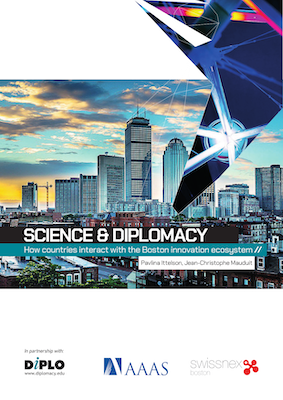Note: This article is a part of the publication ‘Science diplomacy capacity development: Reflections on Diplo’s 2021 course and the road ahead’
As an international student in the United States, I always knew the importance of diplomacy in ways that facilitate and promote safe passage for students to gain knowledge from all over the world. I was introduced to Science Diplomacy through the National Science Policy Network (NSPN) and realized that my scientific expertise could be used in several other ways, such as to frame or inform the policymaking process or to advise diplomatic decisions.
Through NSPN, being placed at Diplo to work on an online course felt surreal. Diplo’s vision for creating a Science Diplomacy curriculum that could be accessed by all attracted me, and the fact that I could contribute to such an endeavor was beyond my belief. However, Katharina Höne and Pavlina Ittelson’s encouragement and approach to the process instilled confidence in me and made me realize my strongest possible contributions.
As the course addressed sustainable development issues, it aligned very well with my passion and competence. Thus, developing modules based on each scientist’s expertise and interacting with the course participants was an enormous learning experience. I understood the importance of viewing issues from Global South and Global North perspectives, as well as the various diplomatic terms and treaties that shape most of the decisions. I was also able to meet some highly proficient and dignified people in the field, thus making meaningful connections for a lifetime.
Hearing their comments on the prepared material and understanding each person’s point of view based on their lived experiences was a revelation. I am glad that I got to be a part of such a community, even beyond the course period, and contribute towards imparting Science Diplomacy. A big thank you to NSPN, Diplo, the course partners, and participants for an experience worth cherishing.








